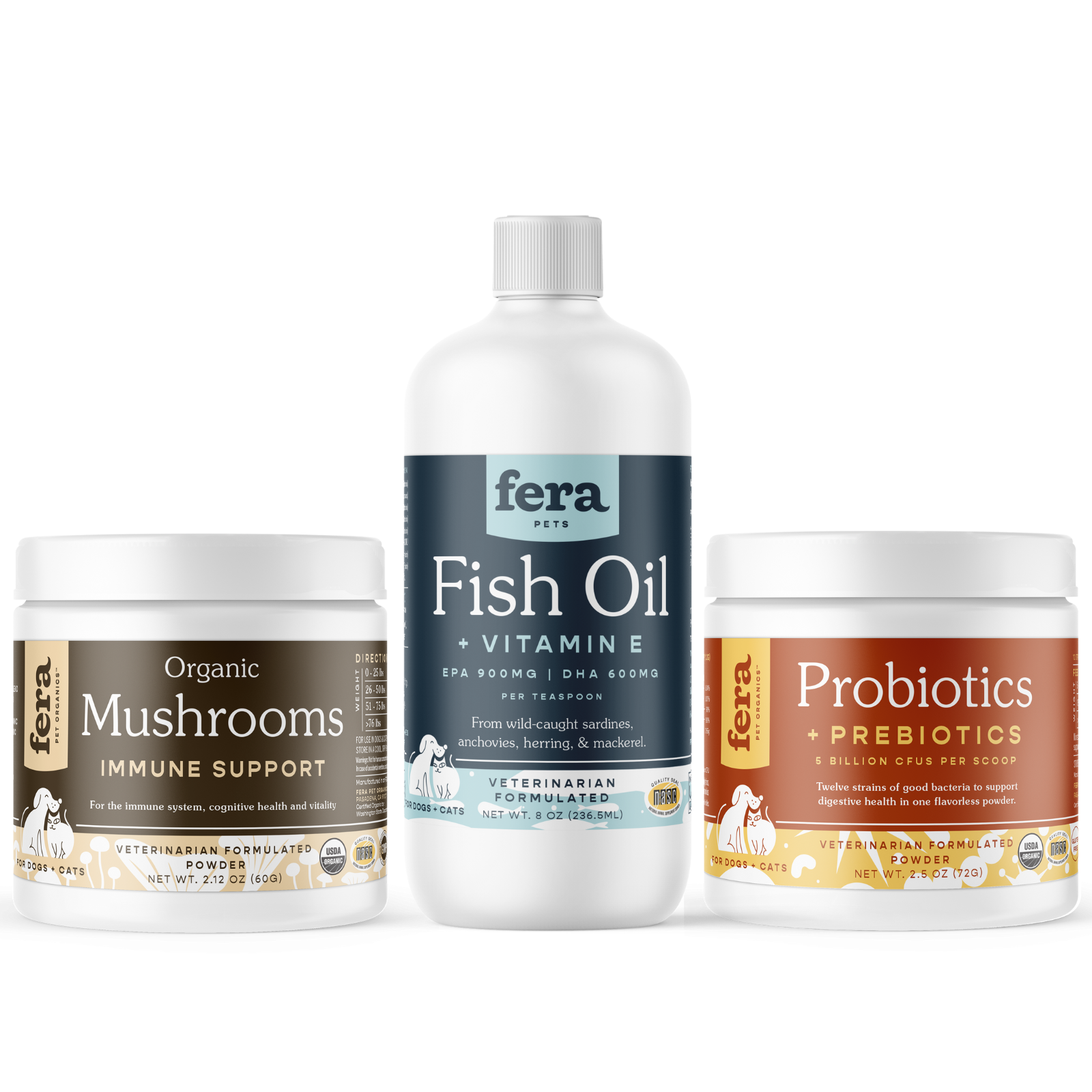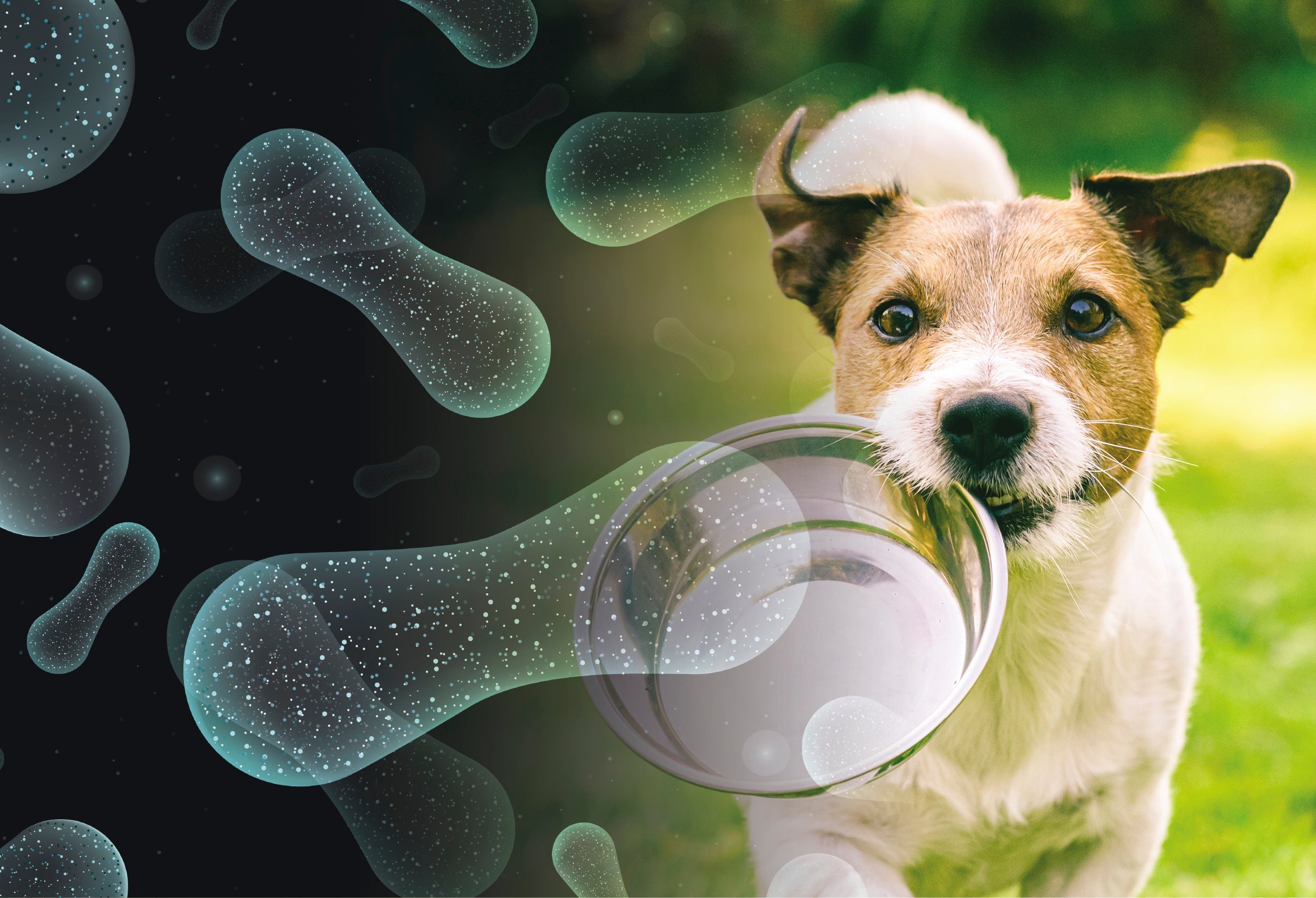Itchy Pet Awareness Month: 3 Ways to Care For Your Companion’s Skin
Alleviate your pet’s persistent itch this Itchy Pet Awareness Month! Discover easy, natural solutions to soothe their discomfort. Everything from the right diet, supplements, hypoallergenic shampoo, to understanding common causes of pet skin issues. Join us for expert advice to keep your much-loved furry friend healthy, happy, and itch-free.
Every pet gets the urge for a nice, comfortable scratch every once in a while, but if the seemingly harmless habit is starting to cause discomfort in your furry friend, it’s time to search “skin deep” for the problem.
August is Itchy Pet Awareness Month, and I’m happy to share some easy things you can do to help your pet find the relief they need this month and every month after.
3 of the Best Ways to Care For Your Pet’s Skin
1. Natural Pet Supplements
Your pet’s diet plays a huge role in the overall vitality of their skin and coat. If you want to give their complexion a little boost, using a pet supplement formulated for the coat and skin is an excellent option.
Here are just a few suggestions from Fera Pet Organics that are made with high-quality ingredients you can trust:
- USDA Organic Probiotics with Prebiotics: This tasteless powder is the perfect blend of organic prebiotics and probiotics that will help keep the microbial balance in your pet’s intestines, which in turn leads to healthier skin.
- Fish Oil + Vitamin E: Fera’s fish oil is made from sustainably wild-caught Icelandic sardines, anchovies, herring, and mackerel, making it the highest concentration of EPA & DHA Omega-3 fatty acids. These help your pet’s body develop and function optimally in every state of their life, especially when it comes to their skin and coat.
- Skin + Coat Goat Milk Topper: Goat milk is rich in collagen and biotin, two essential minerals for skin and coat health. This tasty addition to your pet’s meals features whole cream goat’s milk and other key nutrients that help with itchy skin and pet allergies.
- Omega-3s Algae Oil: Naturally rich in Omega-3s, our algae oil is the only plant-based oil that has the highest natural concentrations of both EPA & DHA. The high amounts of EPA promote healthy skin and coat while helping to control excessive shedding.
2. Nutritious Diet
Health begins with what we put into our bodies, and this same principle applies to our pets. If your four-legged friend is prone to dry and itchy skin, you’ll want to consider switching their food to a recipe that is specially formulated to support skin and coat health.
Look for foods with high-quality animal protein, fatty and amino acids, Vitamin A, Omega 3s, and Biotin. Of course, it’s a good idea to discuss any diet changes with your veterinarian.
3. Use Hypoallergenic Shampoo
There’s nothing like a warm bath with a good hypoallergenic shampoo to ease your pet’s inflamed skin.
If their skin is flaring up, give them a bath with a natural hypoallergenic shampoo at least once a week. Adding a cup of uncooked oatmeal can also prevent further irritation by forming a protective film on your pet’s skin.
Causes of Itchy Skin in Pets
Your pet’s skin is one of their most important organs, but just like any other body part, it’s not immune to external factors that could cause it harm. Here are some of the most common explanations for sensitive skin in pets that you should know about this Itchy Pet Awareness Month.
Pet Allergies
Dogs and cats can experience generic and seasonal allergies just like their owners. However, their symptoms mostly manifest as itchy, inflamed skin. They may also experience bouts of sneezing, coughing, and hair loss.
Food allergies could also be to blame for your pet’s skin issues. If their body is intolerant to ingredients like meat, dairy, soy, or wheat, their skin could erupt in fluid-filled bumps and itchy patches.
Skin Disease or Infections
Prolonged or chronic skin conditions are usually caused by an underlying disease or infection. The types I diagnose the most in my veterinary practice are:
- Atopic Dermatitis: Better known as eczema, this disease is caused by an overreaction to allergens. If left untreated, it could progress into more serious skin conditions.
- Yeast Infection: Yeast is a fungus that grows in moist, warm places. This makes the folds of your pet’s skin an ideal spot. It’s characterized by discolored and greasy patches with a musty scent.
- Folliculitis: Folliculitis is caused by infected hair follicles. Not only is it itchy, but it produces painful scabs, bumps, and sores on your pet’s skin.
- Impetigo: This bacterial infection is mostly seen on an animal’s abdomen and can be recognized by pus-filled blisters. This is usually a secondary skin condition caused by too much scratching.
- Lupus: This autoimmune disease prompts your pet’s immune system to attack its own cells. The result is crusty skin sores that take a while to heal on their own.
If you suspect that your four-legged friend has a skin disease or infection, it’s important to set up an appointment with your veterinarian as soon as possible for a proper diagnosis and treatment.
Pests and Parasites
Creepy crawly pests like ticks, fleas, horseflies, and even ants could be responsible for your pet’s itchy skin. The saliva left behind from a bite might cause an adverse reaction.
There are also microscopic mites that can severely infect the skin and cause a disease called mange. Pets infected with mange display symptoms like intense itching, hair loss, and scabs and lesions on the skin.
If your pet is showing signs of mange, be sure to wash all of their bedding and keep them separated from other pets until they are treated. This condition is highly contagious and difficult to treat once it spreads.
Environmental Substances
If your fur baby is otherwise healthy yet still scratching excessively, something in their environment might be irritating their skin. Dry weather, spring allergens, or synthetic chemicals found in things like cat litter, perfume, or cigarette smoke can trigger itchy skin.
If you’re unsure what is causing your companion to scratch, allergy tests can be performed by your veterinarian.
Step Up Your Pet’s Skincare This Itchy Pet Awareness Month and All-Year-Round
We’re all about creating pet supplements that help your furry family members feel their best today and every day. From skin + coat to joint support, we offer pet parents clean and holistic supplements that help their companions live their happiest and healthiest lives.
Sign up for our newsletter today to join the Fera family and be the first to know about special deals, new products, and more.





